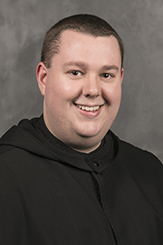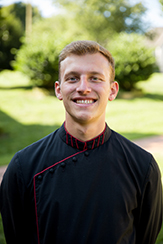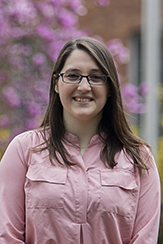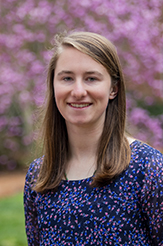Bachelor’s Degree (B.A.) in Philosophy
STUDY WITH THE GREAT THINKERS
As a student of philosophy at the Abbey, you will seek to answer fundamental human questions such as: How should I live? How can I be happy? What can be known? You will be immersed in the Catholic intellectual tradition and other classic works of the past, including those by Plato, Aristotle, Descartes, and Hume. You will learn to express ideas clearly and convincingly, and sharpen your thinking as you answer fundamental questions at the root of every study or enterprise. Many successful people — including supreme court judges, founders of large companies, journalists, and medical researchers — claim that studying philosophy gave them the reasoning skills they needed to succeed.
Possible career paths:
Teaching, law, research, government, psychology, business, journalism, medicine
request more information
$81k
Average Salary For Philosophy Majors
Program Details
In addition to the specific requirements listed in the section below, all students at the Abbey are required to earn credits in our core liberal arts curriculum.
Requirements:
*It is the student’s responsibility to verify that all degree requirements for graduation are fulfilled.
Philosophy of Science and Nature
What is a nature? What is science? Are Aristotelian natures compatible with Darwinian evolution? Can science produce knowledge or only theories? Should we trust science? These are some of the questions answered in this course, which prepares students for studying metaphysics and epistemology.
The Good Life
How should humans live? This course considers that question by studying approaches to ethics and topics like happiness, virtue, love, friendship, natural law, duty, utility and sexuality. This course provides the conceptual background for further studies in contemporary ethical issues, business ethics, law, politics and related topics.
Faith & Reason
This course examines the nature and origins of faith and current challenges to the rationality of faith including common arguments for and against God’s existence, religious belief and practice, the problem of evil and miracles.
More About the Experience

 Father Paschal Pautler, O.S.B. ‘18
Father Paschal Pautler, O.S.B. ‘18
Since graduating from Belmont Abbey College, the fruits of my B.A. in Philosophy have become increasingly manifest as I continue my graduate academic work and priestly formation. It is only after studying in such a rigorous Philosophy program under professors of the highest caliber and dedication that I see the great effect which the study of wisdom and right thinking has produced in me. Having studied the landscape of Western thought, I now find myself more able to delve into dense reading material, write clear and convincing arguments, and assess the fundamental premises of difficult questions. Furthermore, it was a great joy to study in an environment which encouraged not only academic rigor but also well-rounded human goodness. Though challenging, my study of Philosophy at Belmont Abbey College has been one of the most rewarding and worthwhile pursuits of my academic career.
Max Marck ‘19
My time at Belmont Abbey was full of profound discovery in all my classes, but none more than the Philosophy classes. In topics ranging from metaphysics to ethics, the classes are taught by professors that are simultaneously knowledgeable and skilled in clearly relating complexity and subtlety. The philosophy faculty is helpful to all their students, and their approach is education in the classic sense: a leading out rather than a spoon fed set of doctrines. At the same time, the program does not shy away from maintaining standards for truth, and the professors help make sure that their students make substantive arguments. Going through the Belmont Abbey College philosophy program was an exceedingly enriching experience for me, and I would strongly encourage anyone interested in pursuing this field of study to consider the program.

 Father Matthew Harrison ‘20
Father Matthew Harrison ‘20
To pray in the mind of the church has been the greatest blessing during my time in seminary. I am daily brought into something far greater than myself and taught how to bring it to others. The second greatest blessing follows directly from this, the ability to think in the mind of the church. The philosophy department at Belmont Abbey introduced my mind to the mind of the Church, showing me how to think about God, creation, and myself through the beautiful partnership between the natural reason God made me with, and the revealed truths He gives me through scripture and tradition.

 Father Aaron Huber ‘18
Father Aaron Huber ‘18
From the beginning, the Philosophy Program at Belmont Abbey challenged the way I thought, saw the world, and saw myself. Through studying philosophy at the Abbey, I was truly being formed to be a lover of Truth and Wisdom. To this day, I am grateful for the opportunity I received to embrace the hard questions, gain the skills to think and respond to them, and to dive deeper into the treasury of the history of philosophy.

 Jessica Huber
Jessica Huber
The Philosophy Department has taught and challenged me in many ways. Specifically, it has taught me how to reason my way through what I believe and why I believe it. It has challenged me to ask the tough questions, to be charitable in interpretation and to seek truth in all things. It is also a lesson in humility. It has taught me the valuable lesson that the more you come to know the more you come to realize how much you don’t know.
The faculty of the Philosophy Department has helped me a lot in their program. They have challenged me academically, and at the same time have helped me keep a balanced life amidst the rigors of academic life. Dr. Siebert not only cares about the intellectual development of his students but the whole person. If ever he thought or knew one of his students was struggling or needed anything, he would reach out ready and willing to help them.

 Rachel Lang ‘21
Rachel Lang ‘21
The philosophy program and faculty at Belmont Abbey College have taught me how to analyze and to engage critically with texts from across the history of philosophy, from the pre-socratics to the moderns, and so to find truth not in this or in that author, but to learn that, since the truth itself transcends time and place and since all men have access to this truth, some truth may be found in every seriously-written philosophical work. The task of the student of philosophy is not merely to seek the truth ardently, but to learn to distinguish truth from falsehood and, having found the truth, having found what is in accordance with reality, to hold onto the truth firmly.

